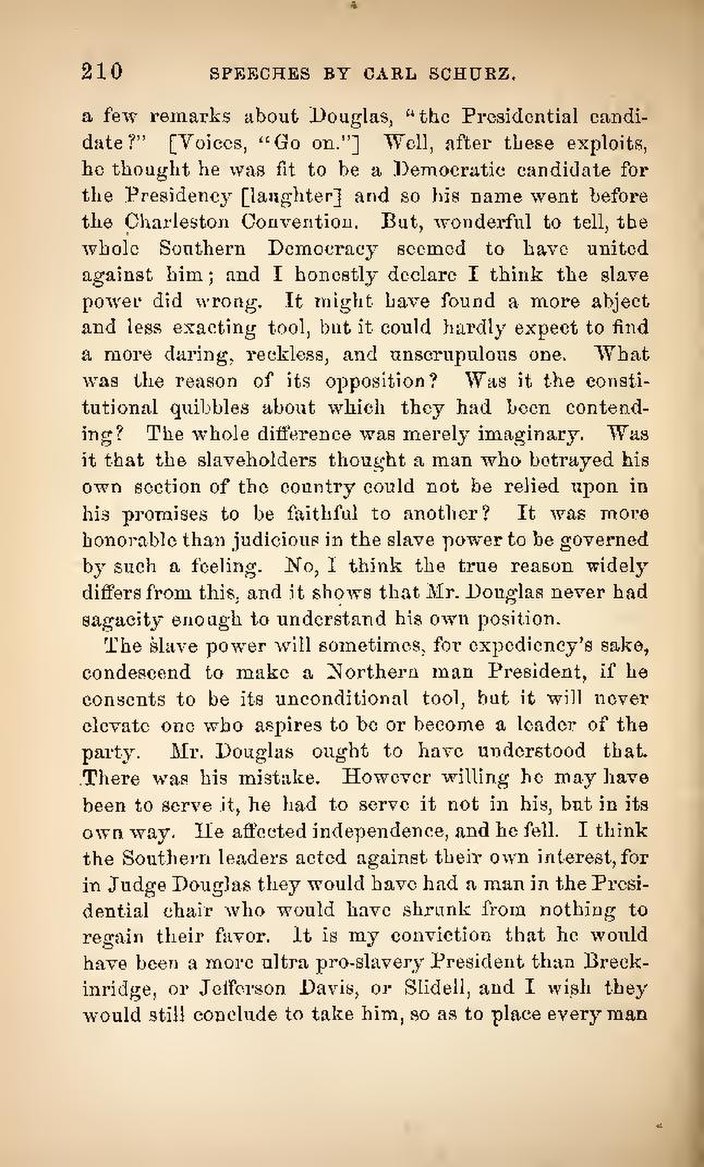a few remarks about Douglas, “the Presidential candidate?” [Voices, “Go on.”] Well, after these exploits, he thought he was fit to be a Democratic candidate for the Presidency [laughter] and so his name went before the Charleston Convention. But, wonderful to tell, the whole Southern Democracy seemed to have united against him; and I honestly declare I think the slave power did wrong. It might have found a more abject and less exacting tool, but it could hardly expect to find a more daring, reckless, and unscrupulous one. What was the reason of its opposition? Was it the constitutional quibbles about which they had been contending? The whole difference was merely imaginary. Was it that the slaveholders thought a man who betrayed his own section of the country could not be relied upon in his promises to be faithful to another? It was more honorable than judicious in the slave power to be governed by such a feeling. No, I think the true reason widely differs from this, and it shows that Mr. Douglas never had sagacity enough to understand his own position.
The slave power will sometimes, for expediency's sake, condescend to make a Northern man President, if he consents to be its unconditional tool, but it will never elevate one who aspires to be or become a leader of the party. Mr. Douglas ought to have understood that. There was his mistake. However willing he may have been to serve it, he had to serve it not in his, but in its own way. He affected independence, and he fell. I think the Southern leaders acted against their own interest, for in Judge Douglas they would have had a man in the Presidential chair who would have shrunk from nothing to regain their favor. It is my conviction that he would have been a more ultra pro-slavery President than Breckinridge, or Jefferson Davis, or Slidell, and I wish they would still conclude to take him, so as to place every man
